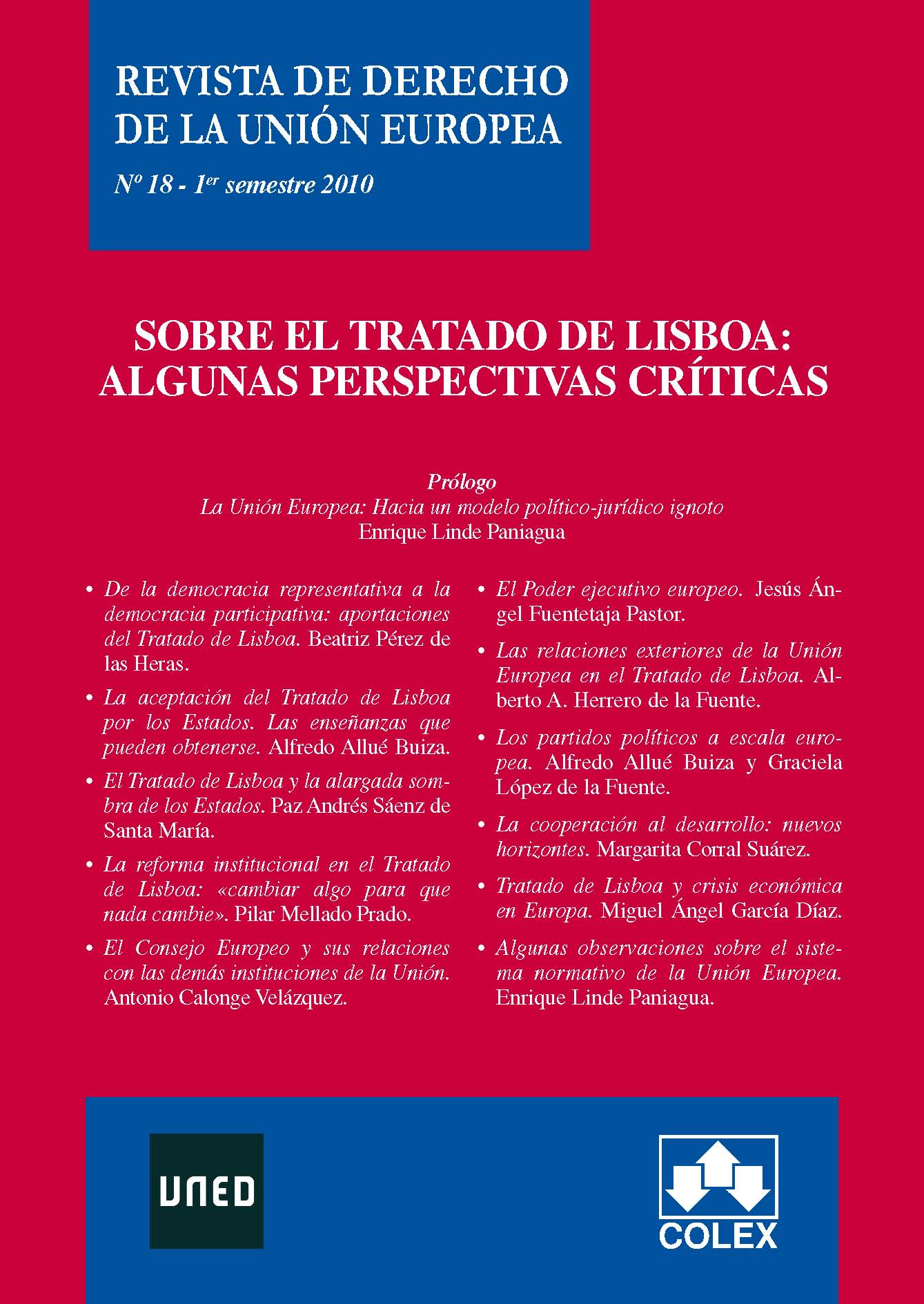Algunas observaciones sobre el sistema normativo de la Unión Europea
Palabras clave:
potestad de iniciativa, operadores legislativos, actos de la unión, procedimientos de producción de actos, gobernabilidad, carácter intraestatal de la unión, power of initiative, operators legislative acts of the union acts production processes, governance, intrastate character of the union,Resumen
Si el Tratado de Lisboa pretendía un mayor fraccionamiento del poder normativo de la Unión, para reflejar el mayor peso del principio intergubernamental sobre el principio supranacional, creo que este objetivo se ha conseguido. La imagen de la Unión dirigida de modo equilibrado por tres instituciones (Consejo, Comisión y Parlamento) nunca fue un fiel reflejo de la realidad, pero no dejaba de ser una aspiración en medio del camino hacia una decidida configuración federal de la Unión. Pero, tras el Tratado de Lisboa, la imagen de los tres poderes se difumina. La Unión se parece más a un coro sin dirección en que muchos, demasiados, operadores compiten sin resultado por dirigirla. El coste de dicho desequilibrio puede ser el de acercarse a los límites de la ingobernabilidad de la Unión.
If the Lisbon Treaty meant a greater fragmentation of normative power of the Union, to reflect the greater weight of the first Intergovernmental Panel on supranational principle, I believe that this objective has been achieved. The image of the Union addressed in a balanced way by three institutions (Council, Commission and Parliament) was never a true reflection of reality, but it was still an aspiration in the path toward a strong federal setup of the Union. But after the Lisbon Treaty, the image of the three powers is blurred. The Union is more like a choir without direction in which many, too many, operators competing without result by direct. The cost of this imbalance may be approaching the limits of the lawlessness of the Union.








